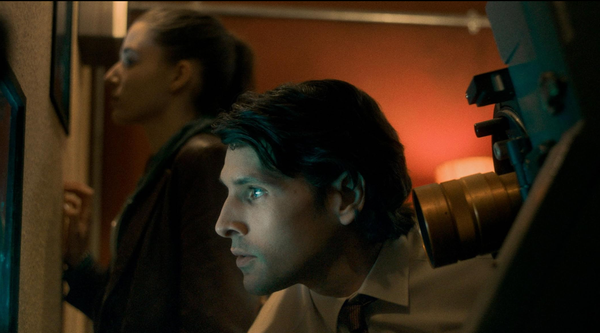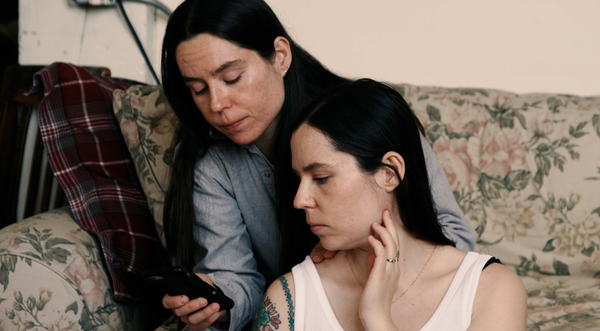Shannon Goodfellow deconstructs the syllabus of The Shadow Scholars at Docs Ireland.
What is the true value of education? What happens when the result of years of study is not a well-paid career? What options are left when this social contract is not fulfilled? These are the questions posed in Eloise King’s documentary, The Shadow Scholars. Executive produced by Steve McQueen, King’s feature debut follows sociologist Professor Patricia Kingori as she investigates the multi-billion dollar industry of “contract cheating”. This is the trade of overqualified yet underemployed young Kenyans completing academic projects for a global network of students.
Driven largely by Professor Kingori’s research, the one hour and thirty-eight minute runtime covers a wide net of exploration. King offers glimpses into the lives of these writers, as well as examining the power dynamics that preceded and perpetuate the need for such services. This broad spectrum of factors includes the lingering impacts of colonialism and government corruption, as well as privilege and entitlement from those paying for this work. While all these influences are not given equal weight, they all pose interesting questions throughout. Archival footage is used to support historical context and is contrasted with impressive and snappy visual graphics such as overlaid quotes, facts and figures to display the industry’s mammoth scale.
As Oxford University’s youngest Black and female professor, Kingori offers a unique perspective as both investigator and occasional participant throughout King’s film. She faces her own trials of racism, classism and being a victim of plagiarism. Interesting parallels are drawn that highlight the systemic issues that prevail throughout every level of academia worldwide. While the ‘shadow scholars’ appear to be largely either empathetic or apathetic towards those paying for their services, Kingori is outraged on their behalf. Kingori’s ire is targeted not only towards those paying for the writers’ knowledge and expertise, but also at the essay mills. These take up to 70% of the fee.
A large proportion of the documentary focuses on the Kenyan writers themselves, showcasing their expertise and examining how their output offers them a lifestyle they would have been unable to achieve by any other means. King allows the participants to retain facets of their identity on screen, often filmed in their homes or local communities through intimate close-ups or sweeping drone shots. The participants are humanised with these glimpses into their personal lives. We meet scholars such as “Mercy”, a single mother who often works through the night writing multiple academic papers to support her eight-year-old daughter’s education. These asides with the writers reveal their hopes and dreams, and their impressive ability to write about multiple areas of study under tight time constraints.
King uses AI tools as a means to blur the participants’ faces and obscure their voices to protect their anonymity. There is also a brief look into the use of AI in essay writing in the latter half of the film. Kingori’s stance on AI is one of condemnation, viewing it as yet another form of theft fuelled by the work of the uncredited Kenyans it may eventually replace. Considering this denunciation, it makes its inclusion in the film’s visuals a perplexing and ironic choice.
This expository feature utilises interviews with experts and academics to balance out Kingori’s analysis, all elevated by sleek cinematography and atmospheric sound design. The pacy editing means that the focus always returns to the plight of the scholars themselves. These writers describe adopting online personas while working in essay mills, using profile pictures of white people to add supposed legitimacy for those seeking their services. This is just another way in which their identity is stripped; their work has their authorship removed and repackaged, delivered under a white, Western online alias.
The Shadow Scholars screened at Queen's Film Theatre on 26th June 2025 for Docs Ireland.







